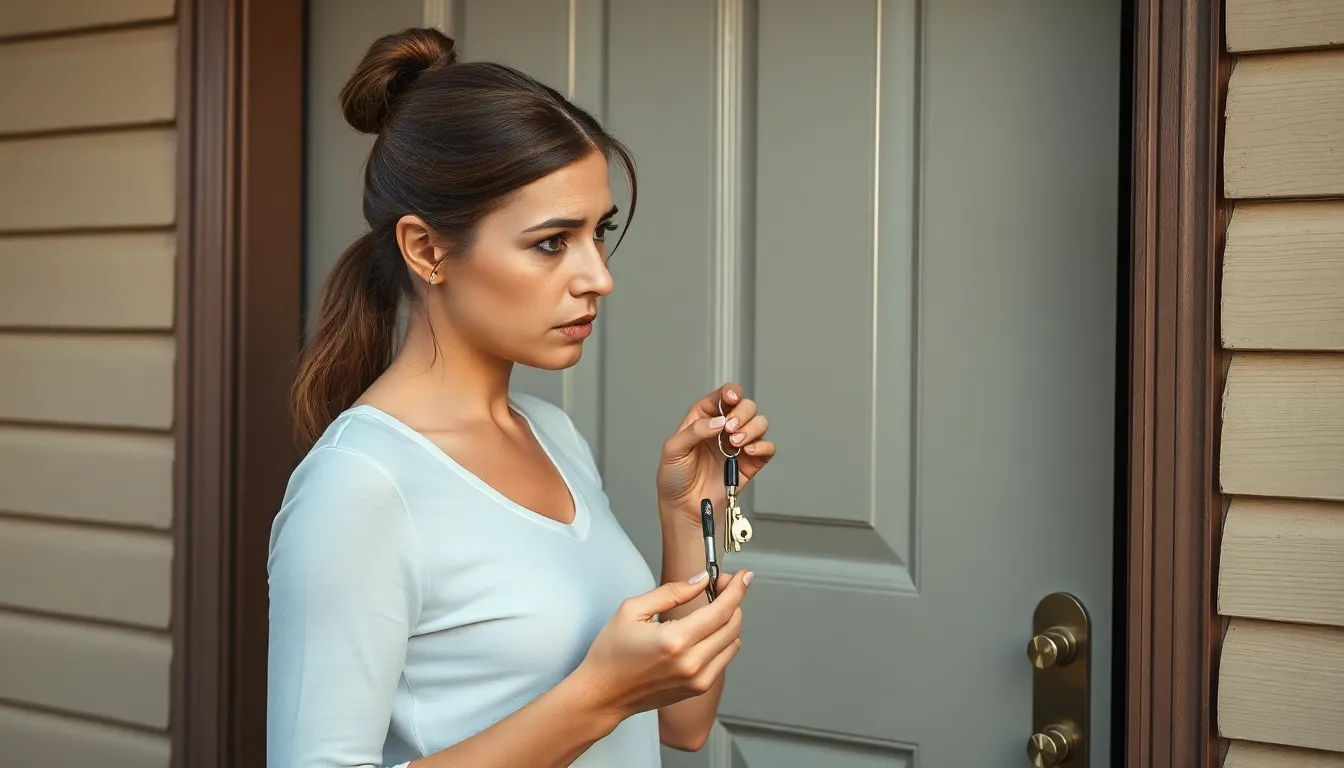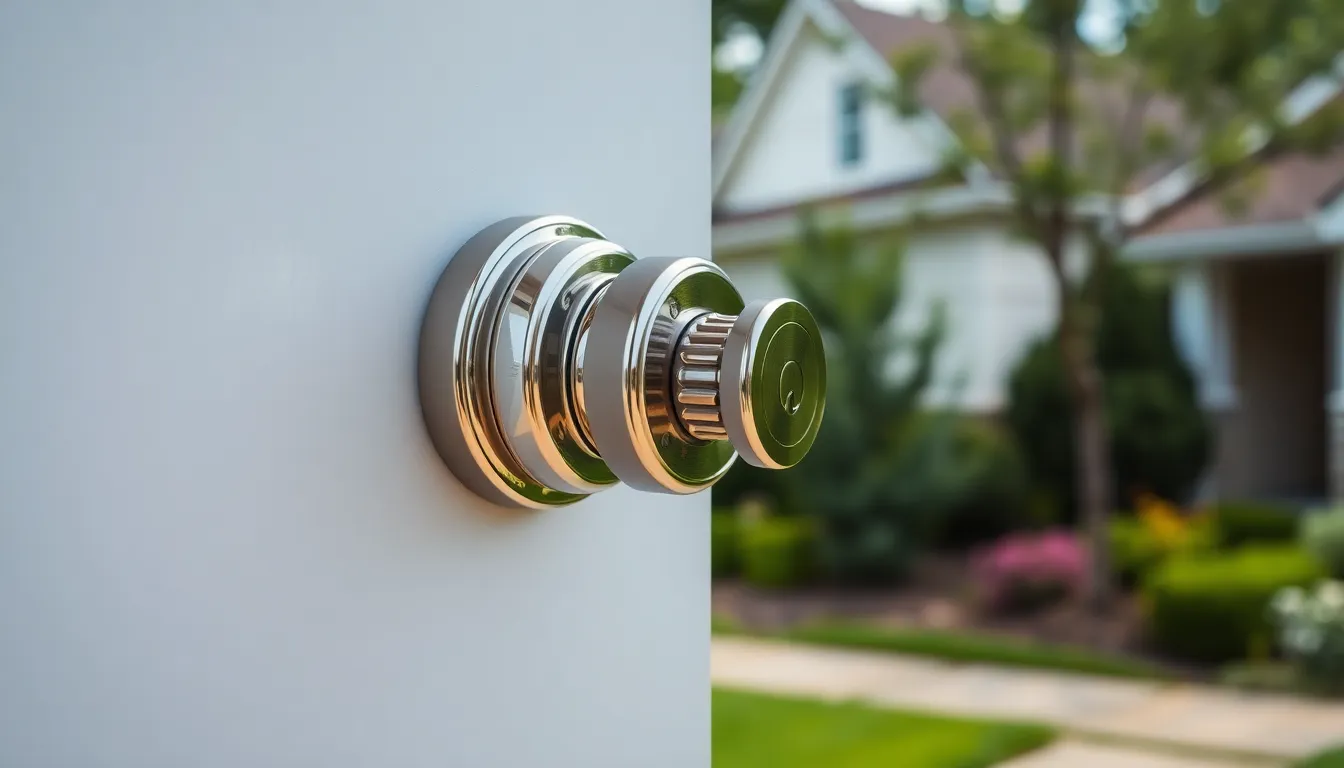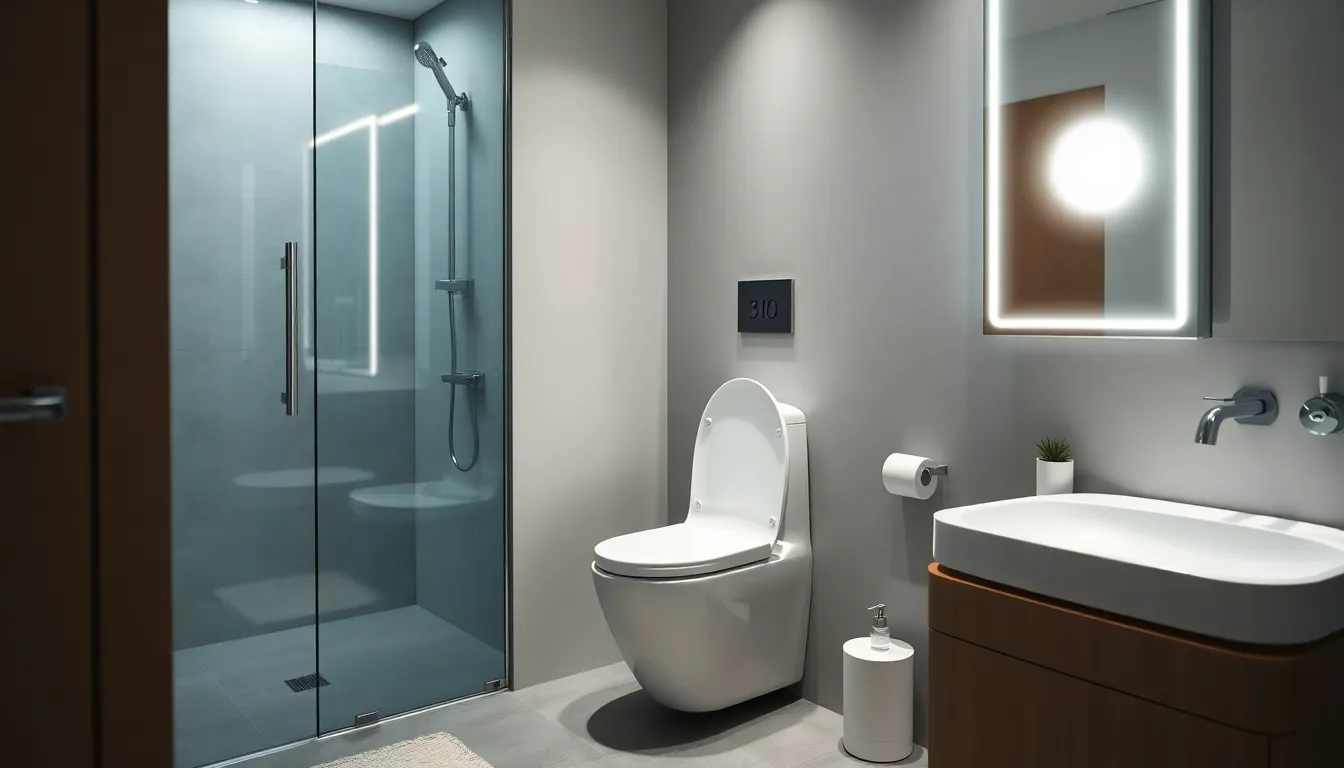Table of Contents
ToggleIn a world where security is paramount, the right to change your locks isn’t just a privilege—it’s a necessity. Imagine the horror of realizing your keys have gone AWOL or, even worse, that someone else might have a spare. It’s enough to make anyone consider a career in locksmithing. But fear not! Understanding your right to change those locks can save you from sleepless nights and unwanted guests.
Understanding the Right to Lock Change
The right to change locks is essential for maintaining security in one’s home. Homeowners benefit significantly from this right, especially in cases involving lost keys or unauthorized access. A simple lock change can provide peace of mind and protect against potential intrusions.
Many states allow tenants to change locks with proper notice to their landlords. Doing so ensures that tenants maintain safety in their living spaces. Furthermore, landlords often appreciate the need for tenants to feel secure in their residences.
Legalities around lock changes may vary by location. Local laws might dictate whether permission is required when changing locks in rental properties. Consulting with a legal expert can clarify any specific regulations applicable to an individual’s situation.
Safety measures also include notifying landlords after a lock change. Communication fosters trust between tenants and landlords while ensuring that emergency access remains available if needed.
In cases of domestic violence or stalking, victims may have additional rights. State laws often provide stipulations that support individuals seeking refuge through lock changes or other security measures. Victims should research local resources that aid in their protection.
Awareness of one’s rights regarding lock changes empowers individuals. Gaining knowledge helps navigate any challenges that might arise when altering home security. Understanding these rights creates an environment where everyone can feel secure and protected in their own space.
Legal Framework Surrounding Lock Change
The legal framework surrounding lock changes varies significantly across jurisdictions. Understanding relevant laws is crucial for both homeowners and tenants.
Relevant Laws and Regulations
Many states provide specific statutes regarding lock changes. Some jurisdictions allow individuals to change locks without prior approval, while others require notification to landlords or property managers. Legal protections often cover victims of domestic violence, enabling them to change locks for enhanced safety. Local laws may stipulate the need for landlords to provide access in emergencies, emphasizing the importance of compliance. Consulting legal experts ensures correct adherence to these regulations, avoiding potential disputes.
Tenant and Landlord Rights
Tenants possess the right to secure their living spaces. Normally, tenants can change locks after notifying their landlords to maintain open communication. Landlords retain some rights, such as access for necessary repairs or inspections, though they must respect a tenant’s security. Both parties benefit from understanding each other’s rights, fostering a cooperative environment. Trust and transparency help ensure safety while navigating the complexities of rental agreements.
Importance of the Right to Lock Change
Understanding the right to change locks is vital for home and personal security. This right empowers individuals to enhance safety in their living spaces and fosters peace of mind.
Security Considerations
Security remains the primary reason for changing locks. Unauthorized access poses significant risks, especially when someone misplaces keys or fears intrusions. This control helps homeowners and tenants feel secure. Legal protections exist across many states, permitting lock changes with prior notice to landlords. Each individual’s situation varies, making it important to know local laws. Maintaining security is about more than just locking doors; it involves having the right tools and knowledge to take action when necessary.
Tenant Autonomy
Tenant autonomy is crucial in the realm of housing rights. Individuals often seek control over their personal spaces to ensure safety and security. When tenants have the right to change locks, they can manage their living environments better. Many jurisdictions allow tenants to change locks after informing landlords. This requirement serves to maintain transparency while giving tenants confidence in their homes. Additionally, autonomy reinforces the importance of a cooperative relationship, ensuring that trust remains intact between tenants and landlords. Robust tenant rights lead to safer living situations for everyone involved.
Common Scenarios for Lock Change Requests
Lock changes often arise in specific situations that warrant immediate action. Understanding these scenarios can assist homeowners and tenants in making informed decisions.
Lease Termination or Renewal
Lease termination or renewal often prompts lock change requests. When a tenant decides to move, they may wish to change the locks to secure their belongings. Landlords may also consider changing locks for new tenants to ensure property security. Many states require landlords to inform the new tenants about the lock change during lease renewal or new agreements. This transparency fosters trust and enhances the sense of security for all parties involved. Notifying the landlord about any lock change becomes crucial for maintaining open communication during these transitions.
Maintenance and Safety Issues
Maintenance and safety issues frequently lead to requests for lock changes. A malfunctioning lock can leave a property vulnerable, making immediate replacement necessary. Safety concerns, such as abandonment or unauthorized key duplication, may compel tenants or homeowners to change locks promptly. In cases of break-ins or vandalism, a lock change becomes a priority to restore security. Many jurisdictions protect individuals seeking changes under these circumstances, emphasizing the importance of addressing safety quickly. Staying proactive about lock maintenance and security helps prevent further risks.
Conclusion
Understanding the right to change locks is crucial for anyone looking to enhance their home security. By knowing their rights and responsibilities, individuals can take proactive steps to protect their living spaces. This knowledge not only alleviates anxiety but also empowers homeowners and tenants to respond effectively to security challenges.
Whether facing issues like lost keys or concerns about unauthorized access, being informed about local regulations can make a significant difference. Ultimately, fostering a secure environment requires awareness and action, ensuring peace of mind for all residents.








